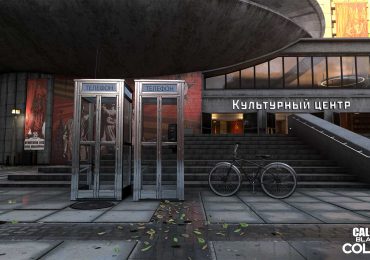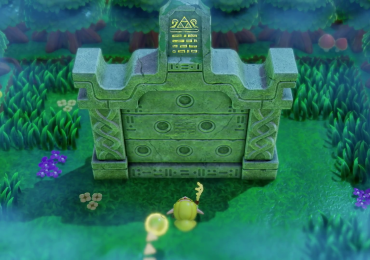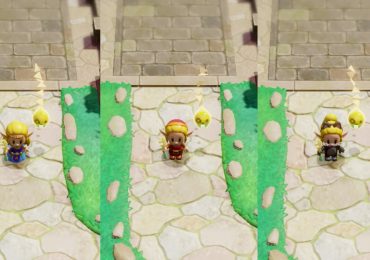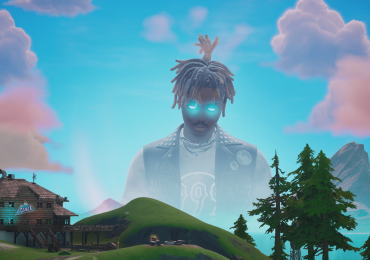
Not all video games go to gamer heaven when you die. Some will stay right here on Earth, passed along to your next of kin — as long as you put it in your will.
The question of what happens to your game libraries when you die is still a relatively new one, a product of the digital-only era. Not only does digital make up a big portion of video game sales, but some stores will reportedly no longer sell physical media like video games. All this is to say that you should start thinking about passing your library on — otherwise, it might end up languishing on your password-protected Steam account.
A Steam customer service agent told ResetEra forum user delete12345 that you can’t pass down your Steam library to another person. (That is, unless you give them your account information and password, which is technically against Valve’s terms of service.) When you purchase a game on Steam, you’re purchasing a license to use that game — you don’t actually own a copy of it.
But Steam is not the only platform that sells video games. Polygon reached out to Valve, Nintendo, Microsoft, Sony Interactive Entertainment, GOG, Itch.io, and Epic Games Store to ask about their policies. Distribution platforms GOG and Itch.io responded: With the right legal permissions — i.e., proof of legal transfer in a will — both stores will try to honor these requests.
A GOG spokesperson told Polygon that, with a court order, the company is “willing to handle such a situation and preserve your GOG library — but currently [it] can only do it with the help of the justice system.” That’s because GOG doesn’t collect a ton of personal information, making it hard to establish a relationship between someone claiming an account and the original account owner.
Here’s GOG’s full statement, which it drafted after receiving several queries from users:
As this is a particularly delicate matter with little to no existing legal guidance on the issue of video games preservation, we’d like to address it properly, so that you, and every other GOG community member, can be sure what can happen to your games in case of unexpected events, such as death.
As you may know, GOG does not collect information sufficient to truly identify a particular person (such as name and surname) or their family or marital status. For this reason, we are not able to establish that someone is related to a particular user or that a particular user has passed away.
In general, your GOG account and GOG content is not transferable. However, if you can obtain a copy of a court order that specifically entitles someone to your GOG personal account, the digital content attached to it taking into account the EULAs of specific games within it, and that specifically refers to your GOG username or at least email address used to create such an account, we’d do our best to make it happen.
We’re willing to handle such a situation and preserve your GOG library — but currently we can only do it with the help of the justice system.
GOG doesn’t use any digital rights management (DRM) technology, though, meaning you can store your purchased games on an external hard drive and pass that along easily.
When it comes to indie distribution platform Itch.io, there’s no formal policy, according to founder Leaf Corcoran. Itch.io accounts are tied to email addresses, he said, so if a next of kin has the account’s password, that’s fine. Itch.io won’t revoke access. But if that person doesn’t have access to the email address, that’s a security problem — unless there is “conclusive evidence” that it’s theirs.
Corcoran doesn’t believe any Itch.io user has ever reached out to the company’s support line about recovering an account from someone who’s died, but he said he would try to help if the person could prove they should have access: “I think that’s a pretty unique case though so it’s possible we may go out of our way to help the requester prove that they should have access to the account.”
Again, that proof would likely have to be via a legal document, like a will.
Microsoft, Sony, Nintendo, Valve, and Epic Games Store did not respond to Polygon’s request for comment, so we looked to their respective terms of service for answers. All of these companies have similar policies: The games licensed to you are not transferable. Transferring your games to another person via a will is, seemingly, still a unique situation that plenty of companies have not yet had to deal with — they may be willing to make exceptions with legal proof of bequeathment, or if they were compelled to by a court. GOG’s end user agreement states, too, that you can’t share or transfer your GOG account or content, but in practice, it’s willing to do so under the right circumstances.
One potential way around this is writing the devices your games are stored on into your will. Lawyer Claudine Wong wrote in the Santa Clara High Technology Law Journal in 2013 that “digital content is transferable to a deceased user’s survivors if legal copies of that content are located on physical devices, such as iPods or Kindle e-readers.” Presumably, this would extend to your laptop or video game console, should you stay logged on or have the password. “So far there is no dispute that the devices, and the works fixed to them, can be passed on,” Wong wrote. Still, Wong’s research is more than 10 years old at this point — technology and companies have changed a ton, and information about digital estate planning is still limited.
Wong suggested that regardless of the legality of it all, you should still write this stuff into your will. “[An] estate plan is an expression of what he desires should happen after his death, and knowing what he wanted provides his family with compelling arguments against the service providers,” Wong said.
It may all sound like a joke — writing your video games into your will — but it’s a problem that will continue to pop up as things keep going more and more online. What happens to your TikTok account, for instance? Your email address? Your Steam or GOG or Epic Games Store accounts likely have more value than both: Just 20 AAA video games cost more than $1,000 in total. And your game library is also a personal thing that someone else might cherish. Beyond how this plays out personally, digital-only video games — and their copyrights and licenses — are a huge challenge for preservationists.
Regardless, 100 years from now, I hope my descendants like my gaming laptop.








